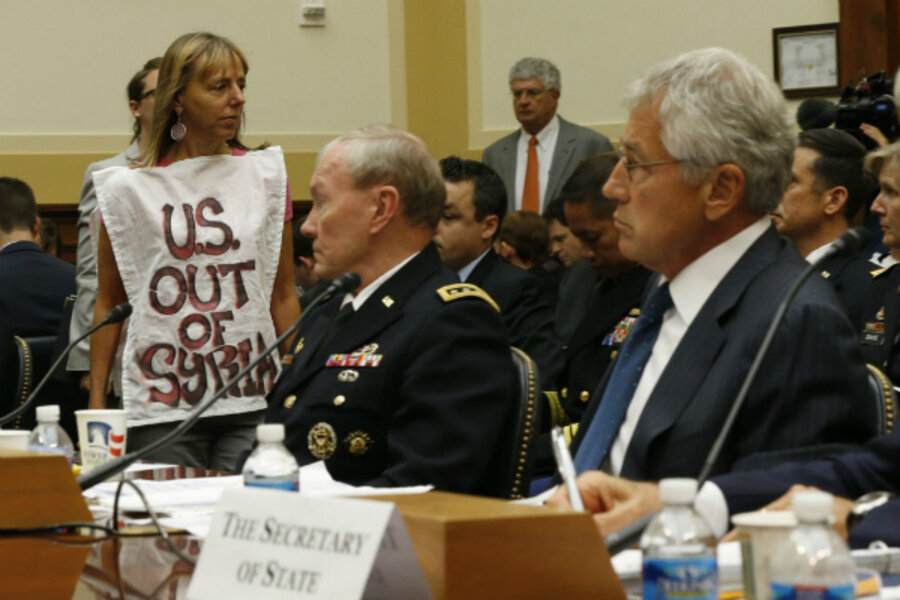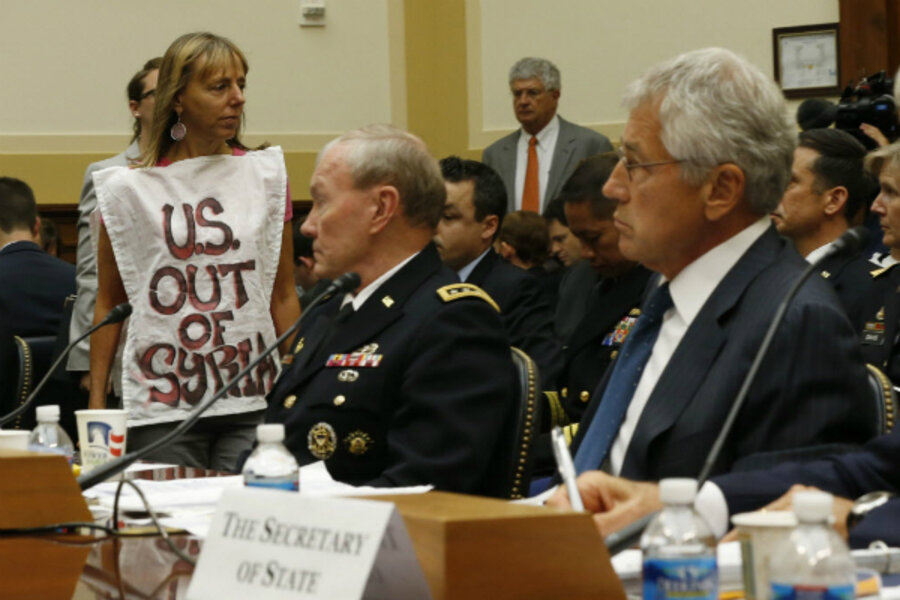A decade of war in Afghanistan and Iraq has taken a toll on American support for military ventures – and on the public's confidence that US airstrikes can make the situation in Syria better.
While robust majorities initially supported the US intervention in Afghanistan (82 percent) and Iraq (59 percent), only 36 percent favor the US taking military action to reduce Syria's ability to use chemical weapons, according to a Gallup poll released Sept. 6.
More than 2 in 3 Americans, on average, approved of previous US military engagements over the last 20 years, at the outset of the conflict. Syria ranks the lowest. "After more than a decade of conflict in Afghanistan and Iraq, war fatigue may be lingering," the Gallup poll concluded.
Other recent polls show even starker opposition. Just 29 percent of Americans in a Pew Research Poll favor airstrikes in Syria, with 48 percent opposed. Nearly three-quarters of those polled say US airstrikes are likely to stir a backlash against the United States and its allies in the region, and 61 percent say they are likely to lead to a long-term US military commitment in Syria.
"Americans have heard it before – that we'll be in and out quick," says Michael Dimock, director of the Pew Research Center for the People & the Press, commenting on the poll. "You could call it war weariness or just a lack of faith in this kind of promise. There's also a related sense that our efforts overseas have not been effective ... or done more harm than good."
To many Americans, the prospect of yet another war in the Middle East – or anywhere, for that matter – is a bridge too far. In June, only 28 percent of Americans said that the Afghan war had been worth fighting, according to an ABC/Washington post poll. The shorthand for all that negativity on war is "war weary."
Six in 10 Americans oppose missile strikes against Syria, even if it's clear that the Assad regime used chemical weapons against its own people, according to an ABC News/Washington Post poll released Sept. 3. That opposition is deep and robust: It extends across party lines, regions, age groups, income, and education levels, the survey showed. Fifty-four percent of Democrats oppose missile strikes, as do 55 percent of Republicans and 66 percent of Independents.







